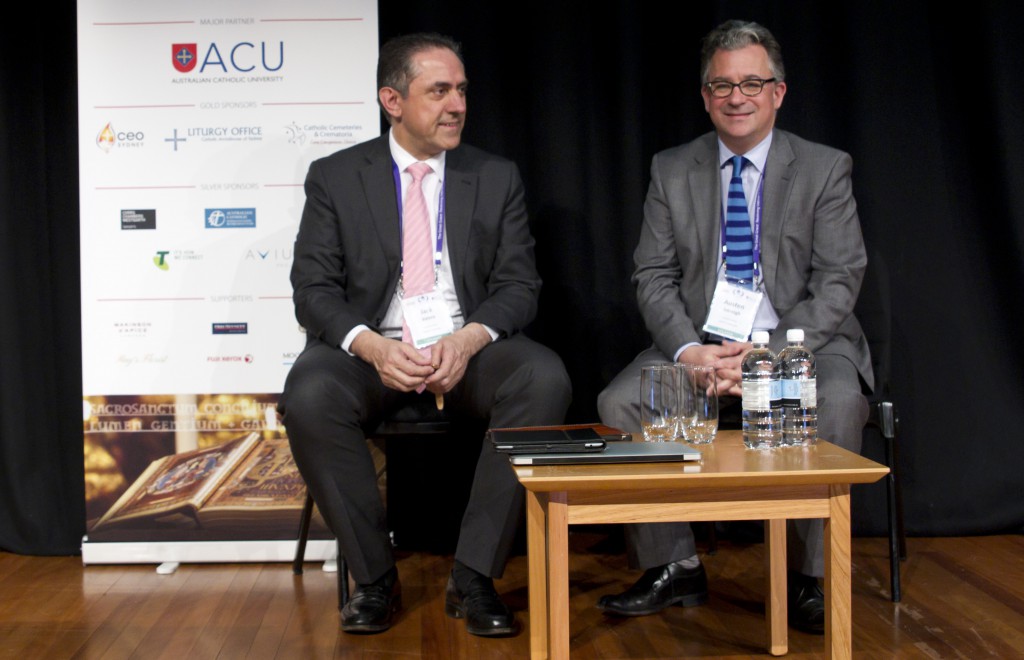
St Francis of Assisi may very well have been ruled completely out of order and relegated as far as possible into obscurity by a diocesan committee if had been born in Australia in the 20th century.
What he had to say was too painful for many in the Church to hear at the time. When people speak of the neuralgic issues in their lives, they are referring to those matters potentially painful to discuss – topics that can cause pain, discomfort, conflict or disagreement.
Not surprisingly, there is often a strong tendency to avoid entering into discussion of such matters on the grounds that it is better to avoid causing another person discomfort or embarrassment by contradicting or questioning what they say.
Such a position might be described as originating with a good intention, but whether it is the appropriate course of action is highly doubtful – such an approach effectively undermining the practical and philosophical primacy of the truth.
There is a second problem with avoiding resolution or discussion of painful matters: to consistently do so risks paralysis for fear of causing offence to others, morphing quickly into a false irenicism that suffocates any chance of progress.
Paradoxically, it is the neuralgic issues at the heart of the confrontation between the baptismal faith of the Church and the spirit of our increasingly secular (and intolerant) society that a growing number of those working for the New Evangelisation see as critical to its success.
Just as paradoxically, most Catholics run a country mile to escape having to engage in any conversation or defence of what our society sees as the neuralgic issues – abortion, fatherlessness, same-sex ‘marriage’, contraception, the family, divorce – and so on.
Meanwhile, in Australia, things have developed in recent decades to the point where the statistically overwhelming default setting among most Catholics is the assumption that to assent to the Church’s teachings in such matters is effectively to embrace a form of religious extremism – even fanaticism.
However, this widespread assumption among Catholics at every level of the Church misses one important fact: people in our wider society have not stopped being interested in Christianity or the Church; the problems of the human condition do not change.
People still search today for the answer to the meaning of their own lives and the lives of those around them as much as they ever have. The human heart does not really change.
The problem is that huge numbers in our society look at the Catholic Church today with something approaching incomprehension.
How, they ask, can anyone assent to such outmoded, perverse and even offensive beliefs when the obvious choice is between reasonable moral autonomy and membership of an institution apparently obsessed with the letter of the law but not its spirit?
And it’s true, many in our society see the Catholic Church (especially) as irrelevant to almost everyone other than the feeble-minded and the infirm.
But one of the more interesting messages to emerge from the Great Grace Conference in Sydney, held from May 20-23, was that from Catholic Voices founders, Jack Valero (Press Officer for Opus Dei UK) and Austen Ivereigh (journalist and commentator).
Each has an intense interest in the New Evangelisation and an impressive track record answering questions from the media and others on all things Catholic.
In their eyes, it is precisely the so-called neuralgic issues for which Catholics should be able and ready to give reasons for their faith. It is precisely these ‘difficult’ hot-button issues, they told conference participants, that are the very ones non-Catholics are interested in the most.
Yes, they may be predisposed to disagree with the Church on whether two men can get married but they are still fascinated by why Catholics so tenaciously believe in apparent perversities such as why marriage can only be between a man and a woman.
What they have largely not heard – and don’t seem likely to hear anytime soon – is why.
One major problem with evangelisation-by-committee, of course, is that such bodies inevitably – we might say intrinsically – risk nothing, precisely for fear of causing concern or consternation among stakeholders.
Another appears to be a basic ignorance as to the dynamic and trajectory of a human life and its constant intersection with God’s love.
To attempt to make the new evangelisation an ‘acceptable’ process has more often than not been a way of avoiding the risk of ridicule for confidently embracing the neuralgic countercultural Church teachings in matters usually to do with sex: a Church of wimps, we might say, that is preferable to a Church that is credal.
Yet, whether the issue is HIV-AIDS and condoms, same-sex marriage, abortion or contraception, it is clear that the Church’s Theology of the Body (to take just one example; we could also nominate the Church’s treasure of Social Teaching) – of which almost all Catholics are ignorant – offers stunning reasons that amaze people when they hear the
explanations. When they do hear such explanations, they usually ask why no-one, especially those in the Church, ever told them the truth.
They begin by assuming Catholics blindly follow the Church because the Church says they have to.
They are amazed to discover its teachings are good, not simply because the Church teaches them but because they really are good. Messrs Valero and Ivereigh are absolutely correct. When we explain what we are for, people stop and think.